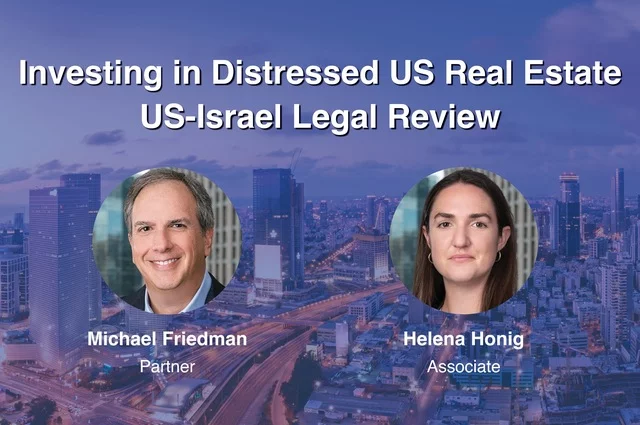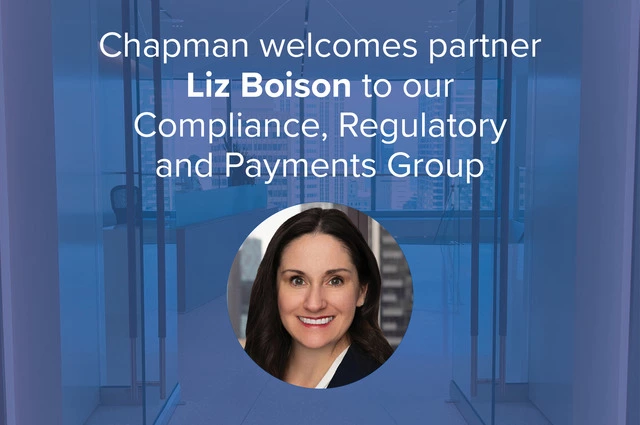On March 19, 2025, the staff of the Division of Investment Management (the “Staff”) of the Securities and Exchange Commission (“Commission”) updated its Marketing Compliance Frequently Asked Questions (“March 2025 FAQs”) to provide no-action relief with respect to the presentation of extracted performance, as well as clarity on whether certain portfolio or investment characteristics constitute “performance” for purposes of Rule 206(4)-1 (the “Marketing Rule”) under the Investment Advisers Act of 1940 (the “Advisers Act”).
On April 4, 2025, the Division of Corporation Finance (“Corp Fin”) of the Securities and Exchange Commission (the “SEC”) issued a statement (“Statement”) that the offer and sale of “Covered Stablecoins,” as defined by Corp Fin, does not involve the offer and sale of securities within the meaning of Section 2(a)(1) of the Securities Act of 1933 (the “Securities Act”) or Section 3(a)(10) of the Securities Exchange Act of 1934 (the “Exchange Act”). Accordingly, Corp Fin stated that “persons involved in the process of ‘minting’ (or creating) and redeeming Covered Stablecoins do not need to register those transactions with the SEC under the Securities Act or fall within one of the Securities Act’s exemption from registration.”
In this article, authors Michael Friedman, Chapman's Israel practice head and practice leader for the firm's Special Situations and Restructuring Group, and associate Helena Honig, provide perspective on distressed investments in real estate in the United States and unique opportunities for investors willing to accept increased levels of risk to generate value and higher returns.
Changes are coming for health care organizations that are borrowers with respect to municipal securities. New data standards required under the Financial Data Transparency Act of 2022 (FDTA) could take effect as early as 2027. In the March/April 2025 issue of AHLA’s Health Law Connections, Chapman partners Mary Kimura and Hillary Phelps provide a summary of the FDTA and the joint standards proposed in August 2024, including reactions from municipal securities industry participants and a look ahead at the next stages of the rulemaking process. They also explore potential impacts of the new data standards on health care organizations and systems.
On March 7, 2025, the Office of the Comptroller of the Currency (“OCC”) issued Interpretive Letter 1183, which confirms that national banks may engage in certain crypto-assets activities and reverses the previous requirement that they first obtain a supervisory non-objection letter before engaging in such activities.
As reported in our recent series of Client Alerts, the Corporate Transparency Act (“CTA”) and the U.S. Department of the Treasury’s (the “Treasury Department”) Financial Crimes Enforcement Network’s (“FinCEN”) related beneficial ownership information (“BOI”) reporting rules have been the subject of a multitude of lawsuits, injunctions and announcements.
The Digital Chamber released a new report: "Beyond Merit: How the SEC's Division of Investment Management Blocked Permissible Investments in Digital Assets." The report seeks to provide a workable framework to turn historical Division of Investment Management actions regarding digital assets into a path forward for the increased availability of digital assets in investment company products. Chapman's Rick Coyle and Morrison Warren assisted in the preparation.
The National Credit Union Administration (NCUA) has released its 2025 Annual Performance Plan, outlining its strategic priorities, resource allocations, and regulatory focus for the fiscal year. This plan is built around three primary goals: ensuring a safe, sound, and resilient system of cooperative credit that safeguards consumers; enhancing financial well-being through access to equitable and affordable financial products and services; and optimizing organizational performance to effectively fulfill the NCUA’s mission. While the NCUA will remain centered on these primary goals, the shifts in federal administration in Washington, in particular among financial regulatory agencies, may signal potential changes to the NCUA priorities and this Plan.
On February 17, 2025, in light of the Supreme Court’s grant of a stay in the Texas Top Cop Shop case, the District Court stayed the nationwide preliminary injunction of the CTA issued in Smith v. U.S. Department of Treasury. As a result, the BOI reporting rules are now once again enforceable and in effect.
Chapman's quarterly Regulatory Update contains an overview of the latest regulatory actions, market happenings, and litigation and enforcement activity in the investment management space.
Client Alerts & Publications
- Client Alert
On March 19, 2025, the staff of the Division of Investment Management (the “Staff”) of the Securities and Exchange Commission (“Commission”) updated its Marketing Compliance Frequently Asked Questions (“March 2025 FAQs”) to provide no-action relief with respect to the presentation of extracted performance, as well as clarity on whether certain portfolio or investment characteristics constitute “performance” for purposes of Rule 206(4)-1 (the “Marketing Rule”) under the Investment Advisers Act of 1940 (the “Advisers Act”).
- Client Alert
On April 4, 2025, the Division of Corporation Finance (“Corp Fin”) of the Securities and Exchange Commission (the “SEC”) issued a statement (“Statement”) that the offer and sale of “Covered Stablecoins,” as defined by Corp Fin, does not involve the offer and sale of securities within the meaning of Section 2(a)(1) of the Securities Act of 1933 (the “Securities Act”) or Section 3(a)(10) of the Securities Exchange Act of 1934 (the “Exchange Act”). Accordingly, Corp Fin stated that “persons involved in the process of ‘minting’ (or creating) and redeeming Covered Stablecoins do not need to register those transactions with the SEC under the Securities Act or fall within one of the Securities Act’s exemption from registration.”
- Article
In this article, authors Michael Friedman, Chapman's Israel practice head and practice leader for the firm's Special Situations and Restructuring Group, and associate Helena Honig, provide perspective on distressed investments in real estate in the United States and unique opportunities for investors willing to accept increased levels of risk to generate value and higher returns.
Events
- Conference
Chapman partner Liz Boison will be speaking at the Women in Housing and Finance 2025 Annual Symposium in Washington, D.C.
- ConferenceApril 30 - May 2, 2025
Chapman is exhibiting and several attorneys will be attending and speaking at the 2025 Illinois ASBO Annual Conference.
- ConferenceApril 30 - May 2, 2025
Chapman is a proud sponsor of the 2025 Utah Association of Counties (UAC) Management Conference. Chapman partner Ryan Bjerke will be attending the conference.
Chapman in the News
- News
Chapman and Cutler LLP mourns the loss of retired partner, colleague, and friend, Craig Fishman.
- News
Ashrakat Hassan, a 2L at Washington University School of Law, is the recipient of the seventh annual Chapman and Cutler LLP Maynard H. Jackson Jr. Scholarship.
- News
Chapman welcomes Liz Boison to our Compliance, Regulatory and Payments Group. A former federal prosecutor and bank regulatory enforcement attorney, Liz leverages her financial regulatory counseling and litigation experience to help clients prevent and resolve criminal and civil anti-money laundering (AML), sanctions, and consumer protection matters.
On March 19, 2025, the staff of the Division of Investment Management (the “Staff”) of the Securities and Exchange Commission (“Commission”) updated its Marketing Compliance Frequently Asked Questions (“March 2025 FAQs”) to provide no-action relief with respect to the presentation of extracted performance, as well as clarity on whether certain portfolio or investment characteristics constitute “performance” for purposes of Rule 206(4)-1 (the “Marketing Rule”) under the Investment Advisers Act of 1940 (the “Advisers Act”).
On April 4, 2025, the Division of Corporation Finance (“Corp Fin”) of the Securities and Exchange Commission (the “SEC”) issued a statement (“Statement”) that the offer and sale of “Covered Stablecoins,” as defined by Corp Fin, does not involve the offer and sale of securities within the meaning of Section 2(a)(1) of the Securities Act of 1933 (the “Securities Act”) or Section 3(a)(10) of the Securities Exchange Act of 1934 (the “Exchange Act”). Accordingly, Corp Fin stated that “persons involved in the process of ‘minting’ (or creating) and redeeming Covered Stablecoins do not need to register those transactions with the SEC under the Securities Act or fall within one of the Securities Act’s exemption from registration.”
In this article, authors Michael Friedman, Chapman's Israel practice head and practice leader for the firm's Special Situations and Restructuring Group, and associate Helena Honig, provide perspective on distressed investments in real estate in the United States and unique opportunities for investors willing to accept increased levels of risk to generate value and higher returns.
Chapman and Cutler LLP mourns the loss of retired partner, colleague, and friend, Craig Fishman.
Changes are coming for health care organizations that are borrowers with respect to municipal securities. New data standards required under the Financial Data Transparency Act of 2022 (FDTA) could take effect as early as 2027. In the March/April 2025 issue of AHLA’s Health Law Connections, Chapman partners Mary Kimura and Hillary Phelps provide a summary of the FDTA and the joint standards proposed in August 2024, including reactions from municipal securities industry participants and a look ahead at the next stages of the rulemaking process. They also explore potential impacts of the new data standards on health care organizations and systems.
On March 7, 2025, the Office of the Comptroller of the Currency (“OCC”) issued Interpretive Letter 1183, which confirms that national banks may engage in certain crypto-assets activities and reverses the previous requirement that they first obtain a supervisory non-objection letter before engaging in such activities.
As reported in our recent series of Client Alerts, the Corporate Transparency Act (“CTA”) and the U.S. Department of the Treasury’s (the “Treasury Department”) Financial Crimes Enforcement Network’s (“FinCEN”) related beneficial ownership information (“BOI”) reporting rules have been the subject of a multitude of lawsuits, injunctions and announcements.
Chapman welcomes Liz Boison to our Compliance, Regulatory and Payments Group. A former federal prosecutor and bank regulatory enforcement attorney, Liz leverages her financial regulatory counseling and litigation experience to help clients prevent and resolve criminal and civil anti-money laundering (AML), sanctions, and consumer protection matters.
The Digital Chamber released a new report: "Beyond Merit: How the SEC's Division of Investment Management Blocked Permissible Investments in Digital Assets." The report seeks to provide a workable framework to turn historical Division of Investment Management actions regarding digital assets into a path forward for the increased availability of digital assets in investment company products. Chapman's Rick Coyle and Morrison Warren assisted in the preparation.
The National Credit Union Administration (NCUA) has released its 2025 Annual Performance Plan, outlining its strategic priorities, resource allocations, and regulatory focus for the fiscal year. This plan is built around three primary goals: ensuring a safe, sound, and resilient system of cooperative credit that safeguards consumers; enhancing financial well-being through access to equitable and affordable financial products and services; and optimizing organizational performance to effectively fulfill the NCUA’s mission. While the NCUA will remain centered on these primary goals, the shifts in federal administration in Washington, in particular among financial regulatory agencies, may signal potential changes to the NCUA priorities and this Plan.
On February 17, 2025, in light of the Supreme Court’s grant of a stay in the Texas Top Cop Shop case, the District Court stayed the nationwide preliminary injunction of the CTA issued in Smith v. U.S. Department of Treasury. As a result, the BOI reporting rules are now once again enforceable and in effect.
Chapman's quarterly Regulatory Update contains an overview of the latest regulatory actions, market happenings, and litigation and enforcement activity in the investment management space.









